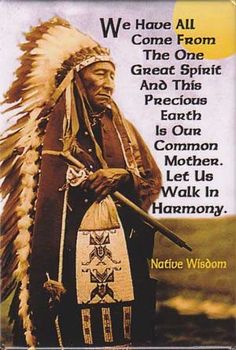Education is a fundamental pillar upon which societies build their futures, yet it often overlooks the unique cultural heritages of indigenous peoples. The question arises: How can we merge the spiritual principles of the Baha’i Faith with the educational aspirations of Native American communities? This synthesis presents both an opportunity for enriched educational paradigms and a challenge in harmonizing diverse worldviews. The Bahá’í teachings offer profound insights into the nature of knowledge and learning that can contribute significantly to Native American education.
The Baha’i teachings emphasize the oneness of humanity and the importance of unity in diversity. This philosophy resonates deeply with Native American beliefs that honor the interconnectedness of all life. It is imperative that educational methodologies reflect this understanding. By incorporating indigenous epistemologies alongside Bahá’í principles, we can create a more holistic educational experience. Educational frameworks that recognize and validate Native American traditions promote not only cultural integrity but also a deeper understanding of moral and ethical development.
One of the striking aspects of Baha’i philosophy is its advocacy for the elimination of prejudice—an essential component in contemporary education. Native American students often confront biases that can hinder their academic success. By fostering an environment that actively combats prejudice and promotes inclusivity, educators can cultivate a nurturing atmosphere conducive to learning. This can be achieved through curriculum design that includes Native American narratives, histories, and contributions to broader society.
Moreover, the Baha’i teachings underscore the importance of moral education. The formation of character is paramount, and it is vital that Native American education incorporates ethical teachings that align with both indigenous values and Baha’i principles. Such a curriculum would include discussions on honesty, integrity, and service to others, enabling students to navigate the complexities of contemporary life while remaining grounded in their cultural heritage.
However, as we consider integrating these educational approaches, a significant challenge surfaces: the balance between preserving cultural practices and embracing the influences of modernity. How can Native American educators incorporate progressive educational techniques while nurturing traditional knowledge? The Baha’i emphasis on the harmony of science and religion offers a potential solution. By promoting a curriculum that respects traditional wisdom while also embracing scientific understanding, we can create a learning environment that honors the past while preparing students for the future.
Furthermore, the concept of consultation, as advocated in Baha’i teachings, can play a vital role in educational settings. Consultation encourages open dialogue and collective decision-making, principles that can enhance collaboration among educators, students, families, and tribal communities. This participatory approach ensures that education remains relevant and reflective of the community’s values and needs, thereby fostering a deeper commitment to learning.
Another critical aspect of Baha’i teachings relevant to education is the empowerment of women and girls. In many Native American communities, traditional gender roles can limit educational opportunities for women. A Baha’i approach can encourage the empowerment of female learners, promoting gender equality within educational systems. Initiatives that focus on empowering young women not only enrich their educational experiences but also contribute to the overall advancement of their communities.
As we explore Baha’i approaches to Native American education, it is essential to consider the role of spirituality in learning. The Baha’i Faith teaches that spiritual growth is integral to human development. Incorporating spiritual teachings and practices in educational settings can provide students with a sense of purpose and resilience. This spiritual dimension can enhance emotional well-being, offering students coping mechanisms to face challenges in their academic and personal lives.
Additionally, service to humanity is a central tenet of Bahá’í belief. Educational frameworks that emphasize community service can instill a sense of responsibility in students. Engaging learners in service projects not only benefits the community but also allows students to apply their knowledge in meaningful ways. Such experiences reinforce the understanding that education extends beyond the classroom; it is a pathway to contributing positively to society.
Moreover, the Baha’i teachings advocate for a strong relationship with nature—a principle that can dovetail seamlessly with Native American respect for the environment. Educational programs that emphasize environmental stewardship can educate students on the importance of preserving natural resources, increasing awareness of ecological issues. This approach aligns with both Baha’i and indigenous teachings and can foster a generational commitment to caring for the Earth.
In conclusion, the fusion of Baha’i principles with Native American education offers a transformative opportunity to redefine educational paradigms. The challenge lies in thoughtfully navigating the integration of diverse cultural perspectives while remaining true to the core values of both traditions. By embracing unity in diversity, fostering moral and spiritual development, and prioritizing community engagement, we can create an educational landscape that not only honors Native American heritage but also aligns with the progressive principles of the Baha’i Faith. The question remains: Are we prepared to take on the challenge of creating a more equitable and inclusive educational environment that benefits all learners?
